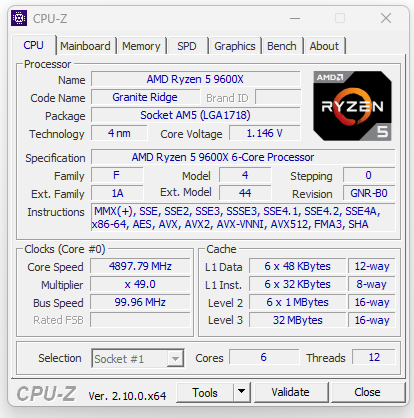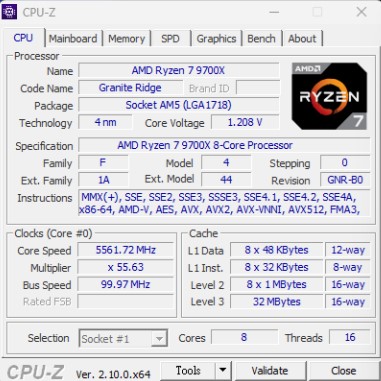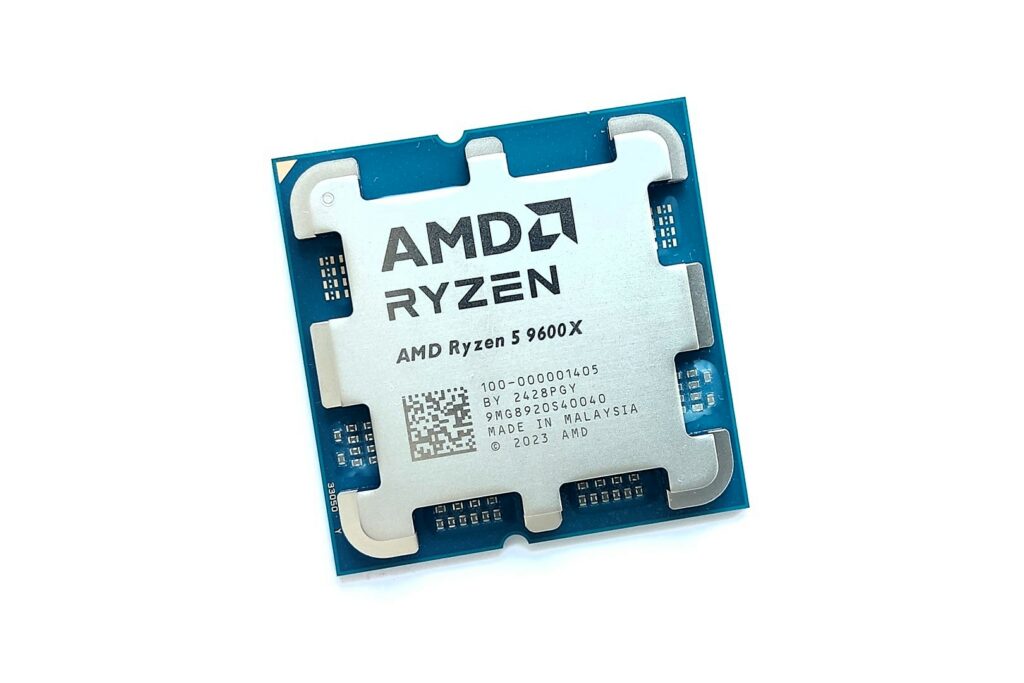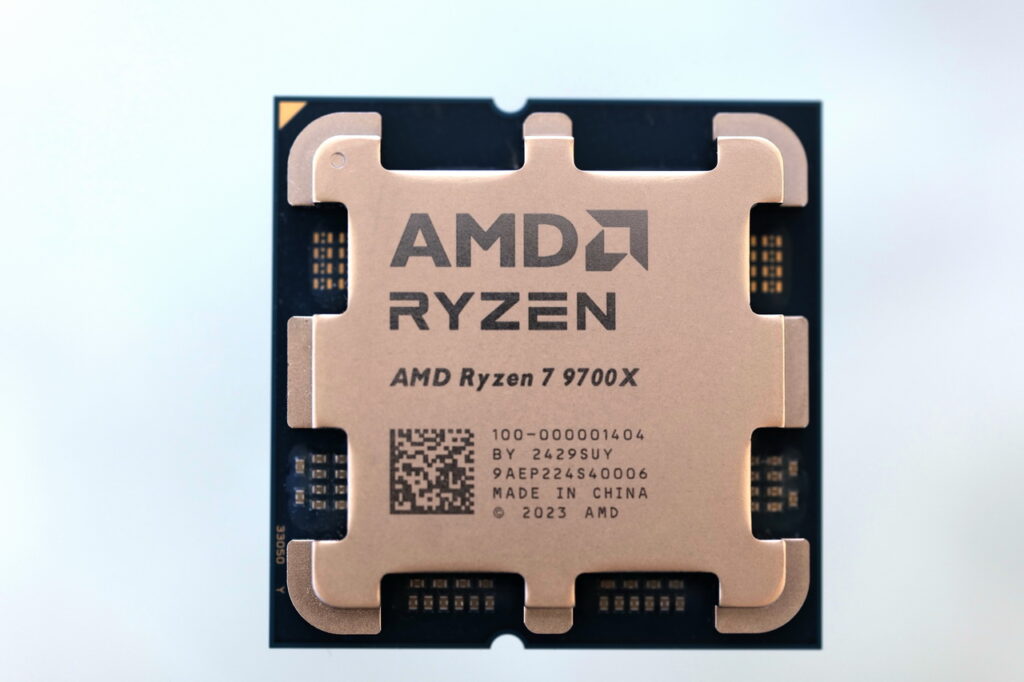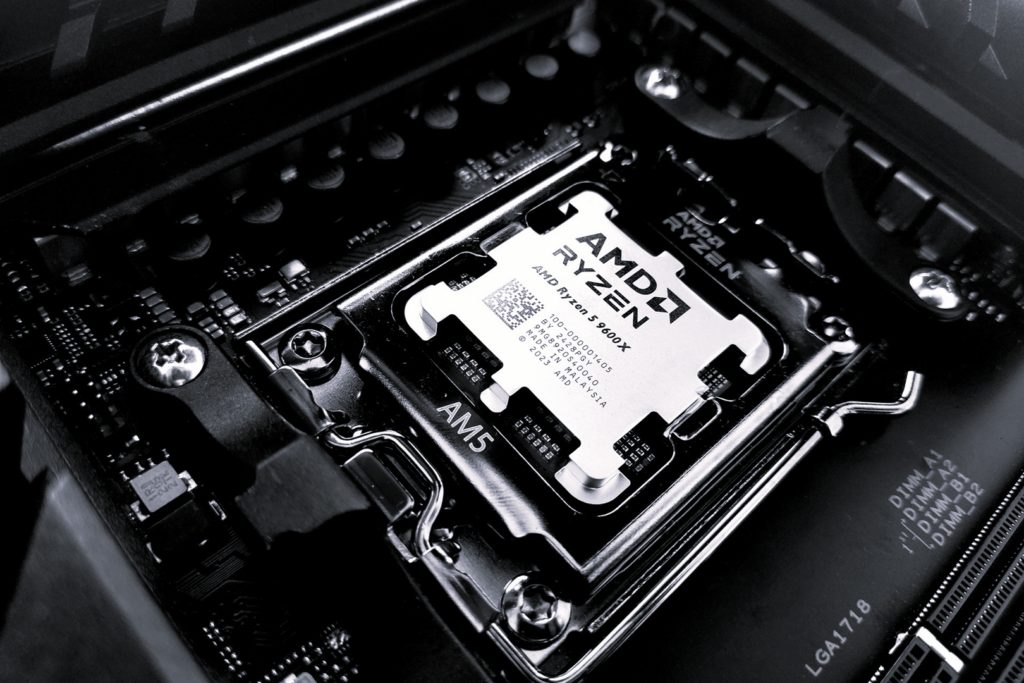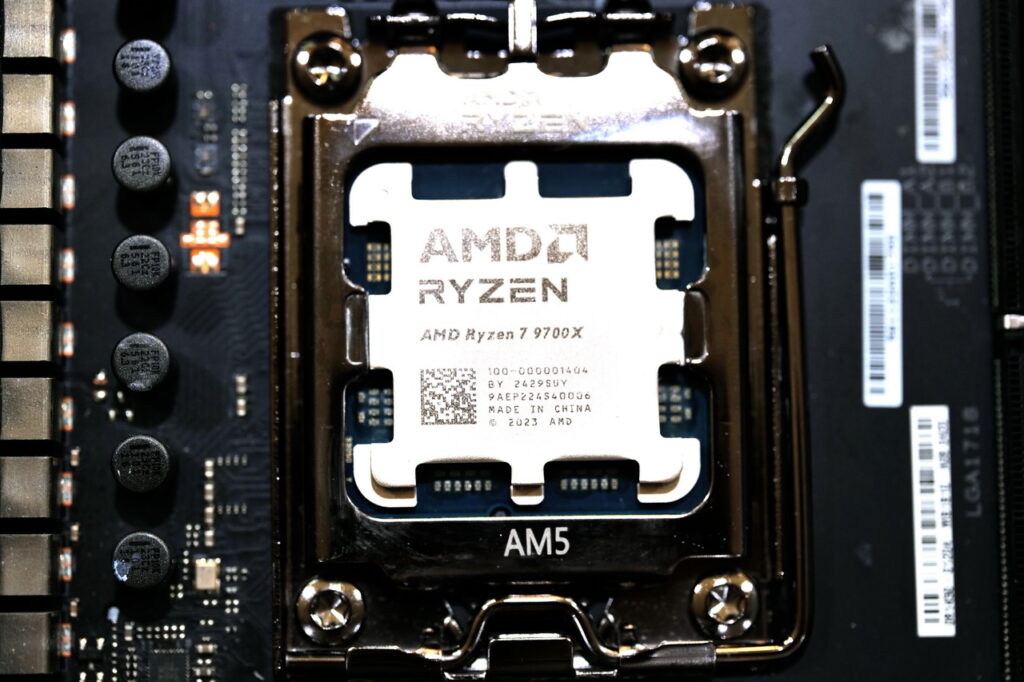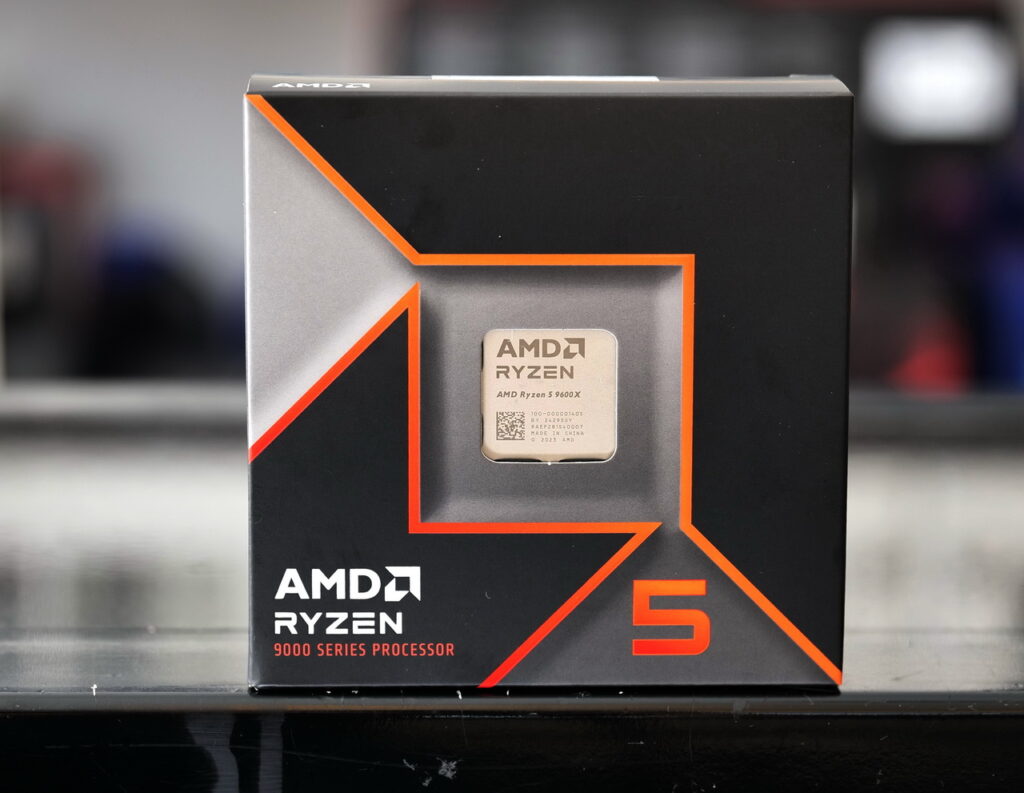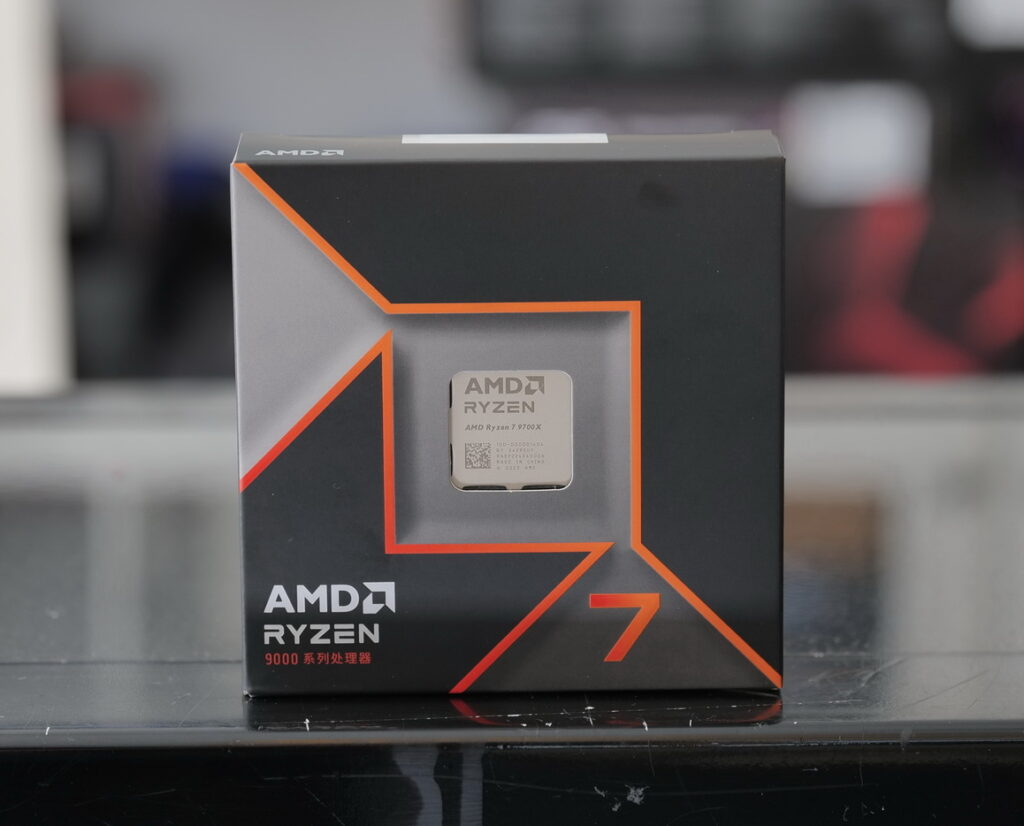- The Ryzen 5 9600X and Ryzen 7 9700X have lower TDP ratings than their predecessors, but these only come as negatives as performance is being limited by power limits.
- While they do show improved single-core and multi-core performance, their numbers in 1080P gaming are hardly better than their predecessors.
- They are also priced lower than their predecessors (at launch), but the 7700X ($294) and 7600X ($199) offer far better value at the moment.
AMD’s Ryzen 5 9600X and Ryzen 7 9700X have dropped, and I was very excited to test them. With lower TDP ratings and slightly lower price tags than their predecessors, they seemed like the next ideal mid- to high-range gaming CPUs. Things haven’t quite gone that way though, and I was disappointed after testing them.
A Quick Preview
The thing to note about the Ryzen 9000 series is that AMD has not relied on clock speed bumps or core count increases to improve performance over the previous generation. So, we have the same 6C/12T and 8C/16T configurations, and the base clock speeds are actually lower than their predecessors. In the cache department, improvements were only made to the L1 cache.
AMD relied on microarchitectural changes instead, including a shift to TSMC’s 4nm FinFET processing node. They have also claimed improved branch prediction, a wider instructions pipeline, and more cache bandwidth. All in all, AMD promised an average 16% IPC uplift over Zen 4, all with better thermal and power efficiency.
I Can’t Tell What They Are Supposed To Be Competing With
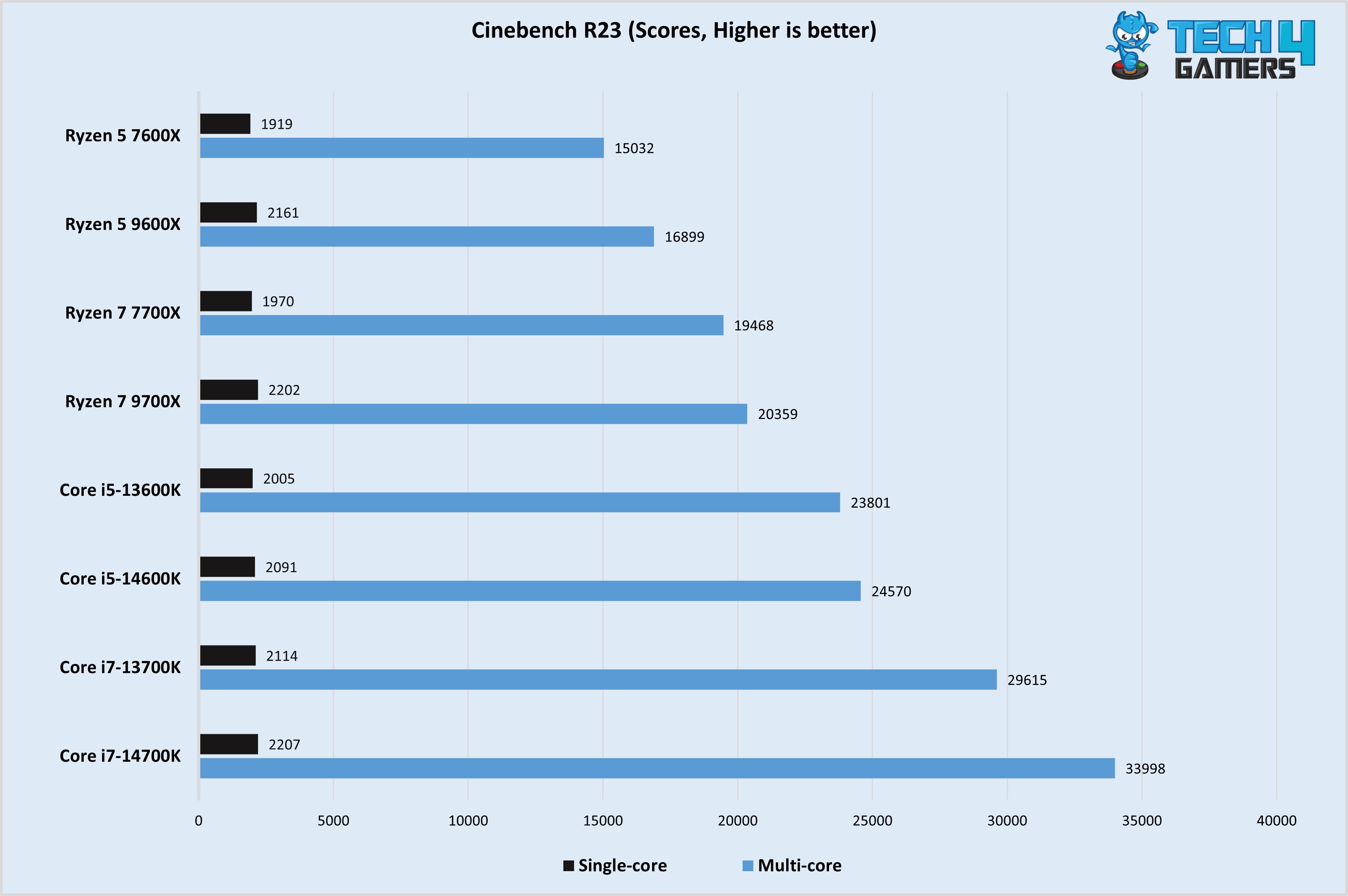
Compared to their predecessors, the overall gains are simply not worth upgrading. Both the 9600X and the 9700X score around 1000-1500 higher in multi-core, which makes up for merely a refresh. The same applies to their single-core benchmarks as well, the difference is just not enough.
Given the Ryzen 5 9600X is priced at $279, its direct competitor should be the previous gen’s 7700X ($294) and Intel’s Core i5-14600K ($299), but it was beaten by both in my multi-threaded GeekBench and Cinbench tests (and by the 13600K). Of course, that happened, though; the 14600K has over 2x more cores, while the 7700X has higher base speeds and two more cores. The 9600X did show decent gains over the 7600X if that’s something.
The 9700X is priced near the 13700K ($329) and 14700K ($381), but can’t compete with the 16-core 13700K let alone the 14700K in multi-core performance. It does stand on par with the 14700K in single-core performance, though.
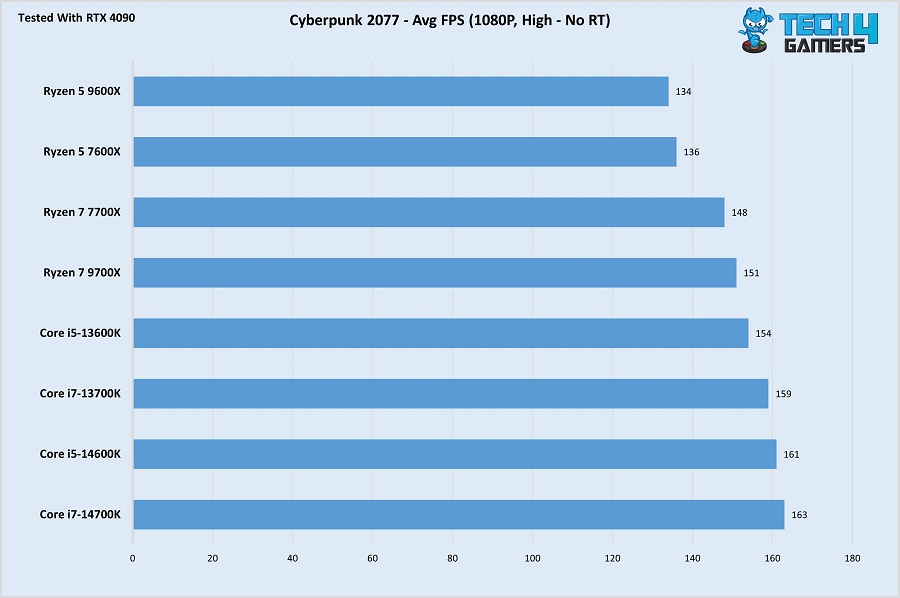
In 1080P ultra gaming, we were reassured that the 9600X’s 6 cores are adequate, but again, it trailed both the 14600K and 7700X and output almost the same FPS as the $198 7600X. The 9700X couldn’t beat its Intel Core i7 rivals either.
AMD’s Power Targets Are Too Optimistic, And Unnecessary.
AMD aimed for even lower power targets than last time, promising “15% thermal resistance” along with a 16% IPC increase. Both CPUs come in at 65W (down from 105W). YouTuber der8auer showed that you can get much better performance from the 9700X by removing the power limits through manual PBO adjustment. You can do this, but make sure you have the thermal headroom, as the CPUs can consume over 150W under load.
I think that AMD would have been better off keeping the same 105W TDP and base clock speeds on the two CPUs. They would still remain more power efficient than the Intel competition and would be able to pull closer in gaming performance. It seems AMD tried to outdo themselves when they could’ve reserved these power targets for (possibly) 9600 and 9700 non-X chips, like those of the 7000 series.
The Price Isn’t Justified
Not only did the Ryzen 5 9600X barely outperform the Ryzen 5 7600X, but it’s currently priced about 40% higher than it. Even compared to the 14600K, it’s only about $20 cheaper but can’t match its performance in gaming or multi-threaded applications. Meanwhile, the 9700X also barely managed to outperform the Ryzen 7 7700X in any applications I tested but has a 22% higher price tag.
Go For The 7600X/7700X Or Overclock
We all knew the real deal would be the Ryzen 9000 X3D CPUs, but AMD could have done better here for the non-X3D chips. There is not much reason to buy the Ryzen 5 9600X or its big brother, whether you’re upgrading from the 7000 series or building a new PC. Performance-wise, Intel’s Raptor Lake CPUs are ahead, and value-wise, the 7600X and 7700X are miles ahead.
While these were only the first two Ryzen 9000 CPUs, I expect a similar pattern to follow for the remaining non-X3D CPUs (except the 9950X, as it hasn’t received a TDP cut). So, all in all, it has been underwhelming so far from AMD, and the near future doesn’t look much better.
AMD had a real chance to deliver a crushing blow to Intel, which is already struggling with the surge of failing 13th and 14th-generation CPUs. Instead, it’s almost like AMD followed in Intel’s footsteps and released refresh CPUs, heck Intel’s refresh chips at least showed some noticeable gaming performance gains.
Of course, the main culprit behind such underwhelming performance is AMD’s aggressive approach towards lower power limits, and sure, the CPUs are indeed impressive in that regard, but at this point they have gone one step too ahead. For anyone planning to get these CPUs, I’d say you should play around with the power limits and try some overclocking to really enjoy these chips.
Lastly, Hayyan Serwer, my fellow hardware tester at Tech4Gamers, and I have also tested several different CPU coolers and motherboards for these processors, and based on performance, design, value, and overall features, we’ve rounded up the top options to help our readers. You can take a look at our results here:
- Best Motherboards For Ryzen 5 9600X
- Best CPU Coolers For Ryzen 5 9600X
- Best Motherboards For Ryzen 7 9700X
Thank you! Please share your positive feedback. 🔋
How could we improve this post? Please Help us. 😔
[Reviews Specialist]
Usman Saleem brings 8+ years of comprehensive PC hardware expertise to the table. His journey in the tech world has involved in-depth tech analysis and insightful PC hardware reviews, perfecting over 6+ years of dedicated work. Usman’s commitment to staying authentic and relevant in the field is underscored by many professional certifications, including a recent one in Google IT Support Specialization.
8+ years of specialized PC hardware coverage
6+ years of in-depth PC hardware analysis and reviews
Lead PC hardware expert across multiple tech journalism platforms
Certified in Google IT Support Specialization
Get In Touch: usman@tech4gamers.com


 Threads
Threads